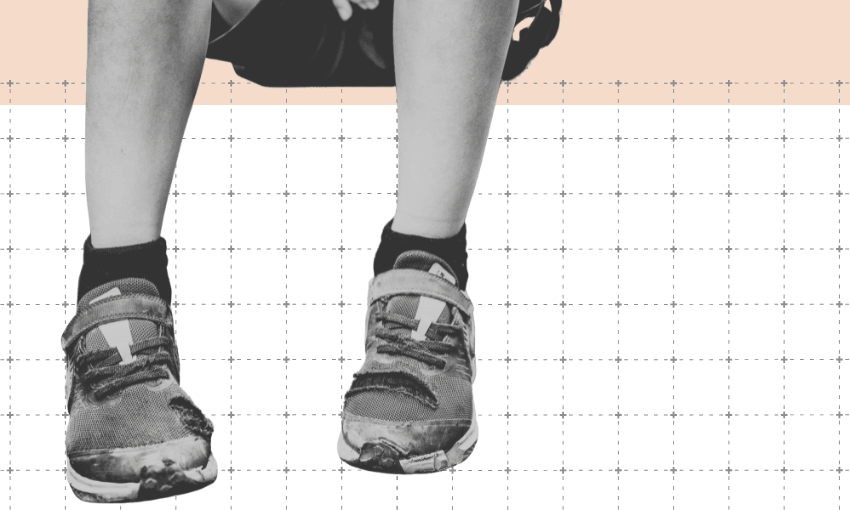In a letter to the Ministry of Health, the health and disability commissioner seeks answers on issues around clinical care for people self-isolating. It comes after three deaths of Covid-positive people who were isolating at home and reports of requests for assistance going unanswered.
Questions around the care being provided to people self-isolating at home after testing positive for Covid-19 have prompted the health and disability commissioner, the independent watchdog for user rights in the sector, to write to the Ministry of Health on an issue which “needs immediate attention”.
The number of people isolating at home while infectious has ballooned in recent weeks, with a string of those affected sounding the alarm over delays in contact and the levels of engagement and oxygen monitoring equipment provided. Over the last 10 days health authorities have reported the deaths of three people isolating at home with the virus.
“I am concerned about increasing media reports of people with Covid-19 who may not be receiving the clinical care they need while self-isolating,” Commissioner Morag McDowell told The Spinoff. “Last week I wrote to the Ministry of Health to bring urgent attention to this matter and I await their response.”
She added: “People have the right to an appropriate standard of care that meets their needs, whether they are being cared for at a health service or isolating at home. While I recognise the pressure the health system is currently under with the rise in Covid-19 cases, this issue needs immediate attention.”
McDowell’s office had been contacted by people over the self-isolation system in recent weeks. “My message to consumers is that the Code of Health and Disability Services Consumers’ Rights continues to apply during the pandemic. I’m paying close attention to their concerns as they raise them with my office, and they should not hesitate to seek urgent care when they need it,” she said.
The focus on care for people isolating at home with Covid is sharpened by a perplexing contrast: hundreds of healthy, double-vaccinated arrivees who have repeatedly returned negative Covid tests are housed in MIQ facilities, where they receive daily check-ups from health professionals, while someone in their 60s who has tested positive for Covid-19 can remain at home.
‘Growing alarm’
Speaking to media on November 3, the Covid response minister Chris Hipkins said, “We are moving much more now to the default of people isolating at home unless there’s a good reason for them to go into MIQ.”
That new approach is reflected unmistakably in the latest Ministry of Health update. As of yesterday, a majority of active community cases are now isolating at home rather than in a managed isolation and quarantine facility. Of 3,622 people with Covid-19, almost 2,000 remain at home, including 1,893 in Auckland and 84 in Waikato. A further 2,781 people who are classified as contacts are isolating at home across the two areas.
Reports of people upset about the treatment have been persistent across the media. The Spinoff has been contacted by two readers concerned that friends or family who tested positive had been required to stay at home, in one case alongside flatmates that worked in hospitality, for more than 48 hours despite requesting a move to an MIQ facility. In both cases, pulse oximeters were not provided.
The most upsetting report concerns a man in his 60s who died at his West Auckland home after coughing up blood. The daughter of the man, who was an imam at a local mosque, said he had been “brushed off” when symptoms were described. “He said to Healthline, ‘I want to go to hospital, should I go to hospital?’ and was told ‘we can call you an ambulance if you want, but these are normal Covid symptoms’,” she told Newshub. The family told the Herald they would be making a complaint to the Health and Disability Commissioner.
The Ministry of Health has refused to comment on the details of the deaths pending investigations by regional health organisations and the coroner. It has also declined to say whether any of those who died with Covid at home had been provided with a pulse oximeter.
A former health and disability commissioner, Ron Paterson, yesterday said he had “watched with growing alarm” reports about the self-isolation system.
While full information was lacking, “frankly, [it’s] evidence to me that it’s a system under strain and people are not, right now, getting the support they need”, said Paterson, emeritus professor at the University of Auckland. Many of those involved would have options under the Code of Rights, Paterson told RNZ. “It does seem to me that prima facie there are breaches going on here.”
How isolating at home works
The process for self-isolation, as described by the Ministry of Health in a statement on November 4, begins with someone who has tested positive receiving a health assessment from regional public health officials. That assessment “considers whether they live in a residence that allows them and their household to isolate safely at home, whether they would like to and feel safe to isolate at home, if they have supplies necessary to isolate at home, and if they understand the isolation period for contacts in their household”.
Next comes “a medical assessment of their clinical needs and any medical conditions they may have. If people need hospital-level care, it is arranged for them. Over the period of required isolation, there are regular checks undertaken through a mixture of phone calls, in person visits and emails. Individuals with Covid-19 are also given a pulse oximeter to help monitor their health.”
That system is clearly backlogged, however, and Auckland GPs say that they have been stepping in to fill holes. “I think the Auckland Regional Public Health Service is overwhelmed with the number of Covid-19 cases it is handling,” Papakura doctor Matire Harwood told Local Democracy Reporting.
After being contacted directly by people isolating at home, “we try to send someone out to see them within a day or two of them testing positive,” Harwood said. “But we’ve been doing this off our own bat. We’ve been doing this ourselves.”
Paterson was disappointed by a failure to sufficiently involve general practitioners in the approach. There was, he said, “a need for a complete redesign to bring the GPs into the loop”.
‘The system wasn’t ready’
Asked whether the self-isolation system was up to scratch, the director general of health Ashley Bloomfield last Wednesday told a press conference it was “working well”.
“We are continuing to strengthen and improve the system and in particular the clinical assessment and advice of anyone who is isolating at home,” he said. “We’re looking back at each of these deaths, obviously, to see what was the level of interaction, exactly what happened in those cases, was there any problem with the clinical assessment and the clinical handover? … We look very carefully to improve at any opportunity to improve both the initial assessment and allocation of someone and also how the system is working.”
The provision of pulse oximeters was important, he added, because “people can deteriorate quite quickly even if they have a history of being well and are well at the time.”
The prime minister, Jacinda Ardern, has accepted there is “certainly room for improvement”. At her post-cabinet press conference yesterday she said an early conversation with a clinician was “absolutely critical” in terms of assessing the risks the individual faced. She said: “That clinical assessment does need to happen early on. That conversation with an individual does need to happen early on. So, yes, that is our shared expectation.” She earlier told media there had been “some examples where we have had to refine what we’re doing”.
A more frank assessment came from the minister of health, Andrew Little, who last week said the delays in the system were “not acceptable”, adding: “There’s definitely been some areas and some individual situations that have not been up to our expectations.” Little conceded that “the system wasn’t ready for the rapid escalation in daily cases. The system was I think preparing for 100 to 120 cases a day and we’re seeing 150 to 200 cases a day, and it just did not expect to be responding to that volume of cases.”
That had left regional public health officials with “a lot to manage [and] there have been some examples where it hasn’t gone well, and quite tragically. We will always seek to improve it, but that handful of cases doesn’t mean that the system isn’t going to cope, and we just have to work through the problems that we’ve got.” He stressed that “overall the system is doing OK.”
Beyond Auckland
With a loosening of the border at either side of New Zealand’s most populous region imminent, along with a shift to the traffic light system, Covid-19 will spread to every part of the country. That includes areas where MIQ facilities are nonexistent, hospitals few and far between and primary health providers confront a particular set of pressures.
Home isolation “is especially going to be a problem for people in rural areas”, said Kyle Eggleton, a Northland locum GP and associate dean in rural health at the University of Auckland. The challenges included limited data connectivity and mobile phone coverage – “some of my patients have to climb a hill to get coverage,” he said – as well as access to food, long waits for ambulance services and limited access to secondary care in hospitals.
“The burden of managing home isolation is likely to fall more heavily on rural health providers as the pandemic extends due to the larger percentage of rural people that are unvaccinated,” Eggleton told The Spinoff. “There is risk stratification for determining who can safely isolate at home and this supposedly takes into account some access factors, but is likely that rurality is not going to be adequately appreciated. Currently monitoring occurs through a central process and there are moves towards getting more primary care involvement. This has to occur in order to make management at home safer as primary care knows the background and context of the patients isolating.”
He added: “Rural areas generally have higher levels of deprivation and higher percentage of Māori and these factors are also going to add to inequitable outcomes from home management unless additional resources and a particular equity focus is taken.”





